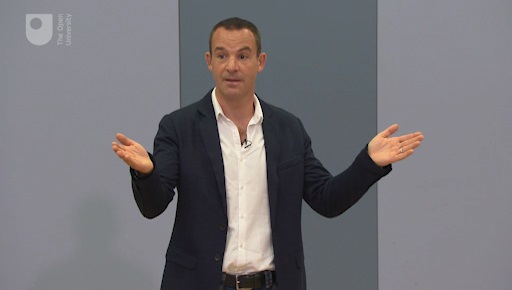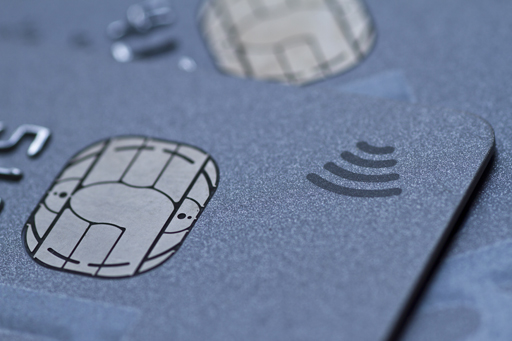12 Your first credit card
When you reach 18 you should aim to get a credit card. After a bank account and a savings account, a credit card is the third cornerstone to personal financial management.
Until you reach the age of 18 no provider will give you a credit card – in the same way that bank overdraft facilities are not available to those under 18. This is because until you are 18 you are not normally legally responsible for your debts.
It may make sense to apply for a credit card from the existing supplier of your bank account, because they will have evidence (hopefully!) of your experience in managing your bank account properly. This will help in their assessment of whether or not you should now be given a credit card.
A credit card allows you to pay for goods and services over a period of time. Instead of the cost of items being taken directly from your bank account, you receive a monthly bill – typically online – telling you the outstanding balance on the account and the minimum amount that you need to pay off this month (for example the greater of 1% of the balance or £25). It makes good financial sense, though, to pay off each monthly bill in full to avoid paying the high rates of interest that you would otherwise be charged.
So a credit card enables you to buy goods that you might not be able to afford in total over the period of a single month but that you can afford if the sum can be spread over a number of months.
All cards have a maximum balance limit that you cannot exceed. This limit will be communicated to you, and at the age of 18 you can expect the limit to be small – maybe just a few hundred pounds.
One reason for using a credit card is that it can help to build up a positive record of how you manage your money. If you use the card sensibly this positive record will help with your credit score – a subject you’ll explore later in this course. Mismanaging your credit card account – for example by missing monthly repayments or even just being late with them – can damage your credit score, as well as racking up interest charges and penalty fees.
So take great care in managing your credit card account. The UK credit reference agencies will be watching you.
Now watch this video where moneysaving expert Martin Lewis talks to students at Denbigh School in Milton Keynes about the pros and cons of credit cards.

Transcript
Activity 3 Good and bad uses of credit cards
Work through the list and say whether – and why – each of these descriptions is a wise or an unwise reason to use a credit card. Add your answer and any notes to the table.
| Good use or sensible | Misuse or unwise | |
| You can shop at various outlets and have only one bill to settle each month. | ||
| If you pay off the full balance each month you will not be charged any interest. | ||
| You can use credit cards to obtain cash at an ATM. | ||
| Some cards offer inducements to use them, such as ‘cashback’.This is where the credit card provider pays you back a small percentage of the money you have spent using their card. | ||
| The interest rate applied to the unpaid balance of your credit card bill is usually very high. This adds materially to the overall cost of your purchases. | ||
| Use of the card – for example, being late with repayments – may adversely affect your credit rating. | ||
| Purchasing with credit cards could provide an additional guarantee (of reimbursement) if the goods acquired are faulty. | ||
| You might spend more on the card than you really wanted to. | ||
| Cards often offer a 0% interest rate (typically for a few months) on balances that are transferred to them from other credit cards. |
Feedback
| Good use or sensible | Misuse or unwise | |
| You can shop at various outlets and have only one bill to settle each month. | Credit cards can be an easy way to make transactions – an easy ‘transactions medium’. | |
| If you pay off the full balance each month you will not be charged any interest. | You can get an interest-free period of up to 2 months between the date you used the card for a purchase and the date the credit card bill has to be paid. | |
| You can use credit cards to obtain cash at an ATM. | You can borrow cash in this way but it’s a bad idea to do so. You get charged interest from the day you borrow the cash and at a rate that can be close to double the rate charged on the balances relating to non-cash transactions. | |
| Some cards offer inducements to use them, such as ’cashback’. This is where the credit card provider pays you back a small percentage of the money you have spent using their card. | This is certainly an advantage of some cards. It’s details like this that you should take into account when choosing your credit card provider. |
|
| The interest rate applied to the unpaid balance of your credit card bill is usually very high. This adds materially to the overall cost of your purchases. | This is a clear risk if you spend more with your card than you can afford to pay off when the bill comes in. | |
| Poor use of the card – for example, being late with repayments – may adversely affect your credit rating. | Late payments, for example, will be registered by the agencies compiling credit files on you. | |
| Purchasing with credit cards could provide an additional guarantee (of reimbursement) if the goods acquired are faulty. | This is one advantage of purchasing goods and services with credit cards, provided the cost is £100 or more. This is known as ‘Section 75 protection’, after the relevant piece of legislation. | |
| You might spend more on the card than you really wanted to. | Using a credit card can give you a temporary sense of detachment from the financial consequences of your purchases. | |
| Cards often offer a 0% interest rate (typically for a few months) on balances that are transferred to them from other credit cards. | Yes (if you are careful!). Being a so-called ‘rate-tart’ can save you money on interest payments on your credit card balance. But you need to be careful to note when a 0% deal come to an end. An upfront fee is charged when you make a transfer, and this needs to be considered when you’re deciding if a transfer will really save you money. |

